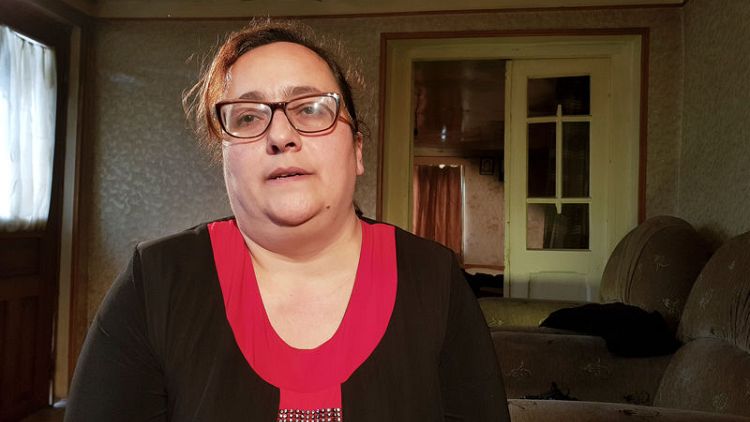By Margarita Antidze
JIMITI, Georgia (Reuters) - When Georgian mother Lia Shioshvili was expelled from Russia 12 years ago, she and her four young children had to spend two days out on the streets by the border, and then two weeks crammed into a basement where they slept on the floor.
Her memories of her 2,000 kilometre journey south from Moscow were revived late last month when the European Court of Human Rights ordered Russia to pay Georgia 10 million euros (8.95 million pounds) over the mass deportation of Georgian citizens from Russia in 2006.
"It was a horror film," said Shioshvili, who at the time was pregnant and had a miscarriage soon after arriving back in Georgia.
Russian officials argued that the people were legally deported because they had violated immigration rules, but the court found that Moscow carried out a coordinated policy of targeting at least 1,500 Georgian nationals for expulsion.
Georgia's foreign minister David Zalkaliani said the ruling was "an important decision and victory for Georgia."
The affair began in late 2006 when Georgia enraged Moscow by arresting four Russian army officers on spying charges. The men were later released but their arrest ignited smouldering tensions between the two nations which were already at odds over Georgia's wish to move closer to the West.
Shioshvili lived in a suburb of Moscow with her husband and four children, when on Nov. 2, 2006 authorities came to her house and told her that she and her children should be deported from Russia as their visas expired.
She decided to leave Russia by train, but after a two-day journey all the Georgians were kicked off the train late at night in Dagestan, southern Russia.
"They (local officials) took part of our money, did not allow us to take all our bags ... It was late at night, very cold, I was pregnant, with four small kids. It was some kind of horror movie," Shioshvili said.
The first two days she and her children spent outside in the cold. "My youngest daughter was then two years old, and I had to change her diapers straight in the cold, putting her on bags."
After two days, Shioshvili and some other deportees moved to a basement room, which they rented together. People did not have normal food, many slept on the floor or in shifts. Two weeks went by like that before Georgian officials finally managed to help them to get back home.
"When I thought that everything was finally over, and we got back home in Georgia, even more misfortune happened to me - my child was born dead," Shioshvili said.
Her husband eventually returned to Georgia to join her.
She filed an individual complaint to the European Court over her treatment, in a case separate to the one submitted by the Georgian state. In 2016, the court ordered Russia to pay Lia and her family $30,000 euros in compensation.
(Editing by Alexandra Hudson)
